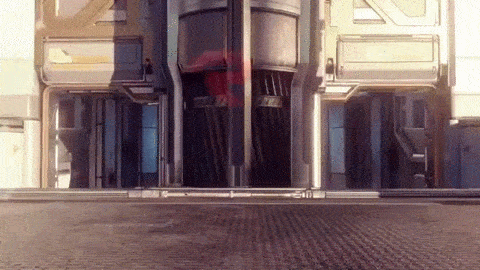Good read. I'd love to see Shoulder Charge kills vs. Assassinations line. Something I forgot to point out in my early access write-up was when I was sprinting from behind and I would melee for the Assassination and it would Shoulder Charge. Don't know if there's a way to make a contextual Shoulder Charge Assassination, but it would be nice.
In response to the following:
- "Spartan chatter: players will have the option to turn this on or off in the settings menu"
- "General tuning for announcer and Spartan chatter to reduce the frequency of events and focus on the information that matters most to players"
The toggle is nice, but if it were up to me, I would have two toggles, one for informational stuff like "enemy has Sniper" or "enemies in blue base". The other toggle would have the chatty stuff.
Lastly, the CSR section was the one I had issues with. I'm just going to break this up on a per paragraph basis, instead of covering it point-by-point.
Halo 5: Guardians features a brand new seven-tier competitive skill rating system. We put an early version of this system through its paces in the beta and uncovered a number of bugs that are being addressed.
Probably the most common question that we heard about CSR was regarding recognition of individual performance. The system is designed to reflect wins and losses at the team level. Individual performance is not taken into account when calculating bonuses/penalties to CSR; its all about team. The one exception is during the initial placement process when the system is solving on individual skill. The biggest complaint we heard was in the case of a losing team member that significantly outperformed the other members of their team. Many players felt that in this case the penalty for losing should be reduced.
It's smart to design it around wins/losses. We all saw Arena S1 in Reach, where it was a combination of AR starts, Armor Lock, and ranks based on individual performance. It was a mess.
The problem with basing everything on wins and losses of the team is when the player enters matchmaking without a team. Either the matchmaking system has to be smart enough to match the player with teammates and opponents of a very close skill level or it has to rank the player differently. Halo 3, Reach, and 4 have shown that randomly putting players together rarely results in having every player on a similar skill level. I've played games where it matched me with complete buffoons and matched me against Poopsockola and co. It sucked losing and being the only positive player on my team and getting a -30 to my rank.
Philosophically we believe that in a team sport the only thing that should matter is wins and losses. We also believe that incentivizing players to prioritize their own individual stats in a team game can undermine team play. A players Kill/Death Ratio (the stat that tends to be focused on in these discussions) is not always a reliable indicator of impact on team success. A player may have inflated kills from finishing off enemies that their teammates have damaged, or may have pursued kills at the expense of positioning and map control. The simplest and best way to assess performance within a team sport, is the teams success.
There's a way to see what kills come from assists. If a player has 25 kills, but their teammates have a combined 5 assists, it's pretty clear who did the work. As for map positioning, there's no good quantifiable way to see that.
The win/loss, is the simplest and the best, but that doesn't mean it is the only thing that matters. Looking at the margin of each game is just as important, and how players can quantifiably add or take away from that margin. A football team that is ranked #1 and loses to an unranked team in OT by a field goal is less notable than the #1 team losing by 21 to the same team. The #1 team losing to the #2 team by a field goal in OT is a lot different that the #1 team losing to the #2 team by 21 points. I will acknowledge that it is a bit different for Halo, as there is both an upper score and time limit, whereas football only has a time limit, but it still remains that win loss is only a single aspect of the final.
Bonuses and penalties are based on the relative strength of the teams at play. Teams are assessed on their collective skill at the beginning of the match. You gain more by winning against a team that is considered to be stronger than your own. Likewise, losing to a more skilled team will result in a lesser penalty to your CSR. These gains and losses are further modified by a players individual CSR relative to the teams at play. So for example, a lower tier player gains more from a win than someone at a higher CSR tier. We will continue refining these bonuses & penalties to reflect the difficulty of each match.
The only thing I can add to this is to make it more visible to the player. Starcraft tells you which team is favored before the match. There was a couple of matches that I played. I largely played solo in Slayer and got placed into Silver. I lost to Silver players and lost 20-30 points. Next match I get matched against Gold players and won. I gained fewer points than I lost. To me, that's a match where I shouldn't have been predicted to win, but I did, and my reward wasn't as much as my penalty.
I have more thoughts on the matter, but I don't have the time right now. Maybe later...

